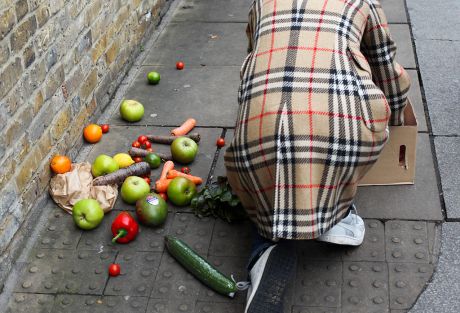Healthy eating requires fresh and safety food. The challenge for the
fresh-cut industry is to reduce chlorine consumption and provide the
same or better standard of fruit and vegetable cleanliness. Chlorine has
been associated with the formation of carcinogenic chlorinated
compounds in water. The Minimally Processed Vegetable (MVP) industry
would like to see less water consumption and wastewater discharge.
The 'Sustainable cleaning and disinfection in fresh-cut food industries' (
SUSCLEAN) project has two basic goals. New equipment and decontamination technology that are environmentally friendly is to be developed while maintaining food safety standards. It is important to note that sanitising includes cleaning or more exactly washing for produce.
In the fruit and veg industry, cleaning/washing mean taking off all of the organic matter like dirt and debris up to the bio-contamination level. However the use of chlorine is solely intended to avoid any contamination of the product when washing it . Anyhow when cleaning or washing, the number of germs on the food processing or product surfaces are reduced significantly.
The project has shown that decontamination is not that easy. Bacteria can be resistant to the decontamination process. There are concerns that the environmentally friendly techniques only encourage more resistant bacteria to niche and grow as a resistant biofilm. Identifying where and when this happens in the processing line is not easy.
Most promising are newly developed onsite detection methods for the decontamination process. Key knowledge was acquired through study of current processes used by the fresh-cut industry.
While experimental work and testing of some new methods was achieved, some research is still in progress. Additional new methods are being proposed for decontamination and remain under evaluation. Different types of fruits and vegetables require different methods of cleaning due to their unique shape.
Some studies in the project clearly concluded that water consumption can be reduced at certain points of the process. Hygienic design requirements are now clearly stated adapted to fresh-cut processing equipment. A new procedure has already been created for salad decontamination involving an ozone process.
All of the new techniques developed in SUSCLEAN will improve the availability of minimally processed vegetables. This will no doubt reduce illness from consumption of contaminated fresh produce and giving business advantages to the European fruit and vegetable industry.

